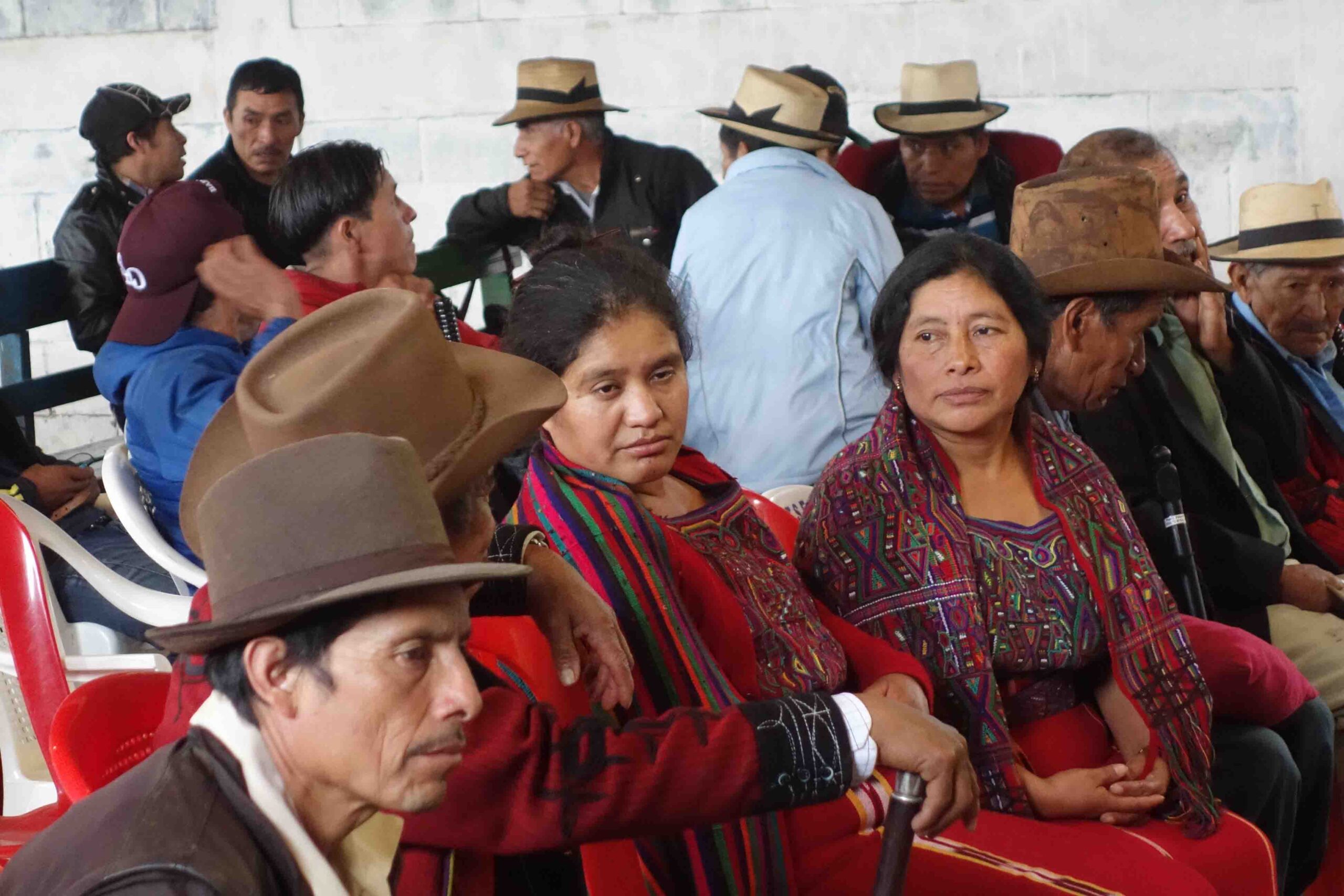Guatemalan indigenous and peasant communities are finally finding a measure of justice and recovering lands and territories that had previously been seized by authorities or private economic actors, including during the internal armed conflict that took place from 1960 to 1996.
The ICJ learned of these encouraging developments at a workshop it held jointly with the UN Office of the High Commissioner on Human Rights (OHCHR) at an International Workshop on strategic litigation in the defense of land and territory, in Guatemala City, between 9 and 10 November.
One of the successful stories, told by Don Pedro Herrera, a community leader from Tzalbal community, municipality of Nebaj, Department of Quiché (Northern Guatemala), concerns a favourable decision by a first instance judge in Nebaj, in August 2016, ordering the restitution of some 1485 hectares (33 caballerias in the old measurement system still in use in Central America) to the Tzalbal communities.
The decision is under appeal before Guatemala’s Constitutional Court, but the Workshop heard that it had already boosted morale and hope among members of local communities on prospects for restitution for violations of their land rights.
The 33 caballerias had been segregated from the rest of municipal and community land in around 1984, in the midst of the Guatemalan civil war and as part of the counter-insurgency plans drawn by the military rulers purportedly to create loyal villages in the frontline to combat insurgency.
Most members of the community at the time had fled their homes, fearing for their lives that were threatened by both the armed insurgency and State military forces.
The de facto local authorities were coerced into signing documents agreeing to the separation of the land, but much of the population had remained unconcerned with the operation.
However, in 2011 FONTIERRAS, the government land authority, revealed to the community that their land had in fact been registered as State property following the forced separation in 1984.
Since then, Tzalbal communities started to take concerted action to recover the lands that they considered to be lawfully theirs and were the places where they maintained their homes and livelihood.
Tzalbal communities have some 70 families with some 500 people of all ages. When they learned that the land they traditionally possessed was “legally” the property of the State of Guatemala, they approached the ICJ- to provide legal assistance.
An Amparo constitutional writ was filed on behalf of the Tzalbal communities requesting the court to protect the rights of property and due process under the Guatemalan Constitution and declare the entry of land property in favour of the State in the land register invalid.
In August 2016, the first instance judge ruled in favour of the communities and ordered the register to amend the entry into the land registry. However, the State representatives have appealed against the ruling and a public hearing on the case took place the first week of November 2017. A final decision on the case by the Constitutional Court is now awaited.
Land, territory and resources are crucial assets for the survival and well being of indigenous and other local communities in Guatemala and other countries. For indigenous peoples, there is also an inherent and special relationship with land and territory which many times acquires religious and cultural significance. At the Workshop on Strategic Litigation, several other groups explained how they carry on their fight for justice and in defense of their land and territory.
Several of those groups recognized the instrumental assistance from the Guatemala office of the UN High Commissioner for Human Rights, which through its Maya Programme provides advice and support to local communities in their defense of land and territory.
One case under discussion, still underway, concerns the legal challenge to the Environmental Impact Assessment carried out by the Island Oil Company pursuant an oil exploration and exploitation contract with the government involving five municipalities of El Petén department. El Petén is the location of the largest biosphere reserve in Guatemala, where, curiously, human settlements are not allowed but some oil companies are authorized to carry out operations.
The legal battle has been led by Qeqchi, Mopan and Itza peoples and supported by the Maya Programme. An administrative remedy known as opposition was filed before MARN, the national authority for the preservation of the environment, alleging the violation of rights such as lack of consultation and consent from local communities. The administrative authority ruled in favour of the plaintiffs and ordered the exploration to stop until regulatory requirements are fully complied with.
Over time, the work of the ICJ and other groups, taken in coordination with the UN human rights office in Guatemala, has begun to show results.
More and more communities are taking concrete steps to legally challenge the actions or laws that cause or perpetuate their dispossession of their traditional land and territory.




